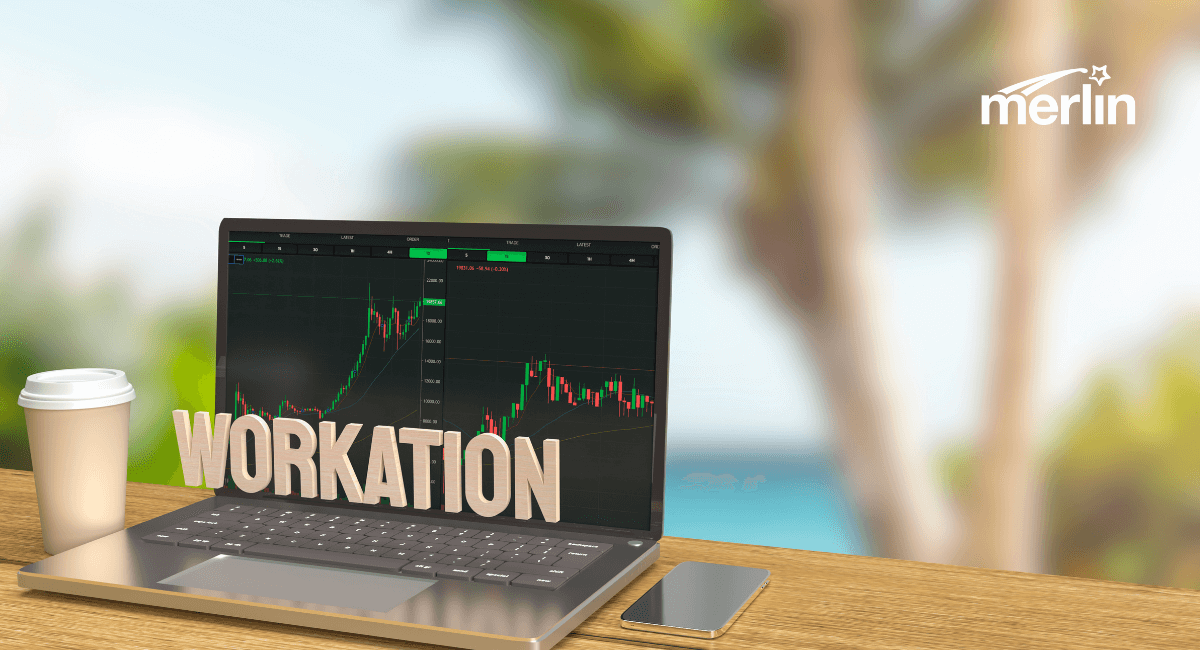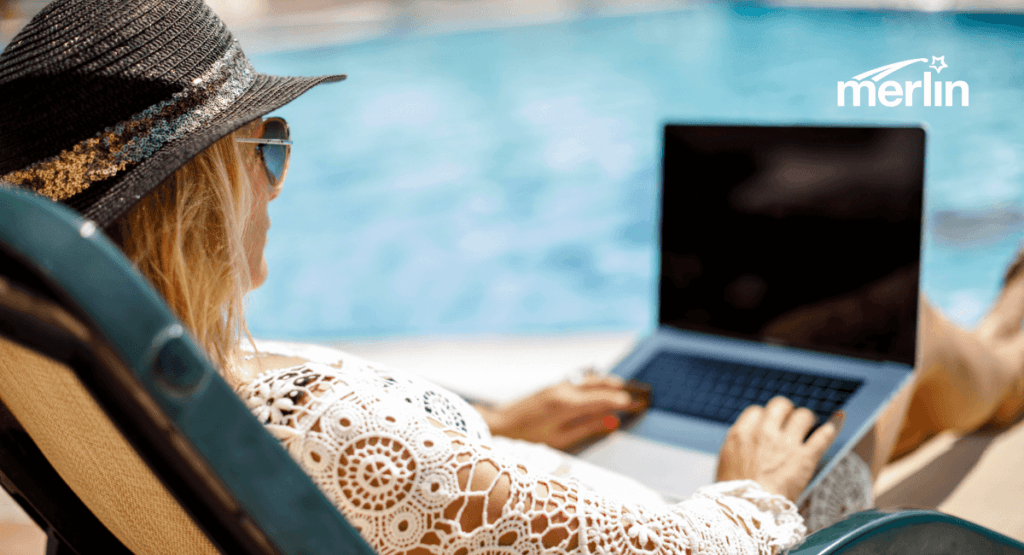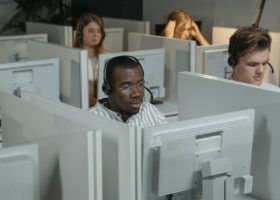
Workations – a new opportunity for your resort?
According to a recent study by BCD Travel, 85 per cent of US workers expect a combination of office and remote work including workations in the future. Indeed, the pandemic served as a compelling example of how productive work can be achieved from home or any other location with reliable internet and access to office facilities.
What’s the difference between bleisure and a workation?
Bleisure often refers to a trip that includes both business and pleasure—for example, attending a conference in New Orleans, Paris, or Bangkok and extending the stay by a few days to make the most of it, perhaps bringing your partner with you as well.
On the other hand, workations typically refer to vacations where we combine some time spent working, taking advantage of good Wi-Fi and new technology to work effectively.
As HR Technologist explains:
“A workation is a vacation that allows you to work remotely while integrating elements of leisure that let you unwind, relax and be more productive.”
A workation differs from remote working, where an employee is entirely offsite and works from wherever they are at all times. Instead, a workationing employee is working temporarily away from the office (Michael Metcalf, Timetastic).
The majority of workations are extensions to the vacation. For example, if an employee is on a family vacation and wants to extend their stay, a workation allows the employee to work while their family enjoys their holiday.
Other workations include:
- Travelling abroad and exploring a new country while working full time during the regular workweek
- Staying with family and friends who live far away and working when they are at work
- Visiting your partner and working when they work without jeopardising your career
What the surveys say
Passport-Photo.online conducted a poll in December 2021 and asked more than 1,000 Americans who had returned from a workation about their motives, needs, and requirements.
Some of the main conclusions from this research include:
• 67 per cent went on a workation to “recharge their mental and emotional batteries.”
• An additional 94 per cent want to take a workation again in 2022 and beyond.
• 86 per cent of workers agree or strongly agree that a workation increased their productivity.
• After taking a workation, 81 per cent reported being more creative at work.
• After taking a workation, nearly 69 per cent were less inclined to quit.
Research from Workation found that:
· Employees found a renewed sense of inspiration when travelling and learned valuable skills and tools whilst working remotely.
· Flexibility increases loyalty; 85 per cent of millennials want flexible work.
· 82 per cent of telecommuters report lower stress.

Are workations an opportunity for resorts?
For the numerous stakeholders in travel and hospitality, this provides both an opportunity and a challenge.
The Covid-19 pandemic has made destinations more desirable to digital nomads and professionals with the flexibility to schedule shorter-stay business trips. The facilities and connections that business travellers often look for are now highlighted by platforms such as Airbnb, Vrbo, and other vacation rental sites.
While restrictions are being dropped by many countries now, the return of another COVID-19 variant could mean the reprisal of stressful testing and proof of vaccination protocols. Rather than stop travelling, it’s believed guests may travel less but increase the duration of the vacation to make it all worthwhile.
As a result, resorts and hotels must begin modifying their rate structures in this changing environment if they want to cater to this expanding consumer group.
To meet the unique demands of this market niche, a weekly or a monthly rate shouldn’t just be a daily charge multiplied by 7 or 30. Instead, they should be marketed and packaged entirely differently. And if your PMS isn’t able to support your plans, then it’s time to look around for a PMS replacement, as this trend is unlikely to end soon.
According to Jason Barnette from Road Trips and Coffee, the perfect vacation is up to two weeks. This allows time to get work completed while having time to explore and enjoy the destination.
Moreover, resorts and hotels must consider the other services these workation guests might require. For example, access to additional business services, childcare for working guests, quiet flex spaces for Zoom calls, work areas within the apartment, good phone reception (or a landline), and the fastest internet you can offer in your area. These will encourage guests to combine their vacations with work commitments.
Other options include:
• Spacious work desks and ergonomic chairs
• Smart rooms where everything can be controlled from a smartphone or tablet
• Complimentary tea and coffee
• Grab and go or ready-made meals for breakfast and lunch
• Co-working spaces
• Networking cocktail hours
• Offering a transport service or shuttle to popular destinations, so workationing guests don’t have to worry about driving
• Flexible apartment cleaning routines, so workers are not disturbed
• Easy access to local guides and information about must-do activities
How Merlin Software can help
Workations allow employees to travel for more extended periods than traditional vacations. It can shake up the working environment, stimulate creativity and inspire new ways of thinking. But of course, for the business, there are concerns and downsides.
That is why Merlin’s new Work From Home WebApp can help.
This exciting addition to Merlin’s Suite of WebApps provides a daily structure to the employee, so they know what they need to work on without constant input from the office. It helps workationing employees prioritise tasks and activities, and, notably for the business, managers can monitor what the employee is working on at any time.
To find out more about Merlin’s Work From Home WebApp, contact Mark Thomas at markt@quickmerlin.com
Source:
Frederic Gonzalo for E-Hotelier



